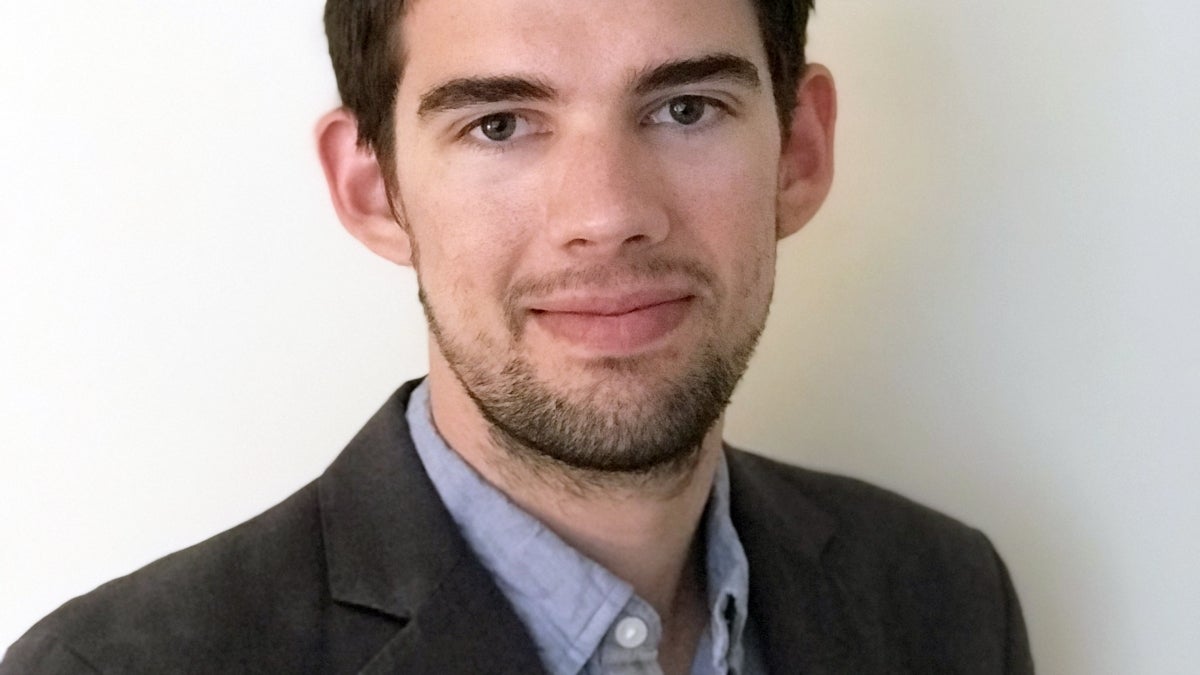ASU graduate student combats cancer with math

Brendon K. Colbert was selected as one of six ASU engineering National Science Foundation Graduate Research Fellows.
Brendon K. Colbert has been interested in the human immune system ever since his youngest brother was diagnosed with a large number of food allergies. That fueled his desire to study the intersection of biological sciences and control systems engineering.
As one of 2,000 National Science Foundation Graduate Research Fellows this year, Colbert will continue his research in those areas as a doctoral student in mechanical engineering at Arizona State University. He’ll explore how to model and control dynamic systems to behave in medically beneficial ways.
“I think control systems engineering can contribute greatly to the biological and medical fields,” said Colbert, who received concurrent bachelor degrees in mechanical engineering and biomedical engineering from Duke University in 2016. “Understanding the dynamics of biological systems will give a number of insights into how the body functions and how we can control different processes to ensure people are healthy.”
The main focus of Colbert’s research is to determine mathematically how the immune system interacts with cancer and develop a treatment strategy to deliver the appropriate medications to patients so their immune systems can kill cancer cells.
“The innovative part of this research is we’re trying to develop treatment protocols based upon the state of the patient’s own immune system,” Colbert said.
“From a control system engineering viewpoint, we would treat the immune system and the cancer cells as a dynamic system that’s constantly changing through time,” he said. “By understanding mathematically how the system changes and how we can alter it, we can find optimal treatment strategies.”
Colbert’s decision to pursue that work in ASU’s Ira A. Fulton Schools of Engineering was driven by the opportunity to work on projects involving control systems engineering and the immune system with Associate Professor Matthew Peet as his research advisor.
“I had read some of Dr. Peet’s research and thought that it was a novel blend of control systems engineering and biology,” Colbert said. “He had published a few papers regarding how the immune system could be modeled mathematically, which I thought was intriguing and very relevant to my interests.”
Colbert says being awarded the NSF fellowship means a great deal to him. The funding it provides will allow him to focus exclusively on his research for the next three years.
He believes his research proposal stood out from more than 12,000 fellowship applicants because it demonstrated the potential of his work to advance knowledge at the intersection of biology and control systems engineering.
“I’m honored to have received the award,” Colbert said. “I’m also proud of how I’ve grown as a researcher these past few years and that I was able to put together a proposal that was accepted.”
After completing his doctoral studies, Colbert intends to remain in academia or a related field of research with the long-term goal of becoming a professor.
Colbert has been inspired by many professors at ASU and Duke University to teach and continue his research.
“The support I’ve been given by a number of professors and teachers has been instrumental in bringing me to this point in my life,” Colbert said. “I would love to give back through mentoring and supporting other students to pursue their passions.”
More about the 2018 NSF Graduate Fellow from the Fulton Schools of Engineering:
Logan Mathesen engineering solutions to big data challenges
Lexi Bounds aims to improve lives with synthetic biology
Alisha Menon sets her mind to research brain-inspired computing
Scott Freitas wants to use computer science to solve society's toughest problems
More Science and technology

Indigenous geneticists build unprecedented research community at ASU
When Krystal Tsosie (Diné) was an undergraduate at Arizona State University, there were no Indigenous faculty she could look to…

Pioneering professor of cultural evolution pens essays for leading academic journals
When Robert Boyd wrote his 1985 book “Culture and the Evolutionary Process,” cultural evolution was not considered a true…

Lucy's lasting legacy: Donald Johanson reflects on the discovery of a lifetime
Fifty years ago, in the dusty hills of Hadar, Ethiopia, a young paleoanthropologist, Donald Johanson, discovered what would…